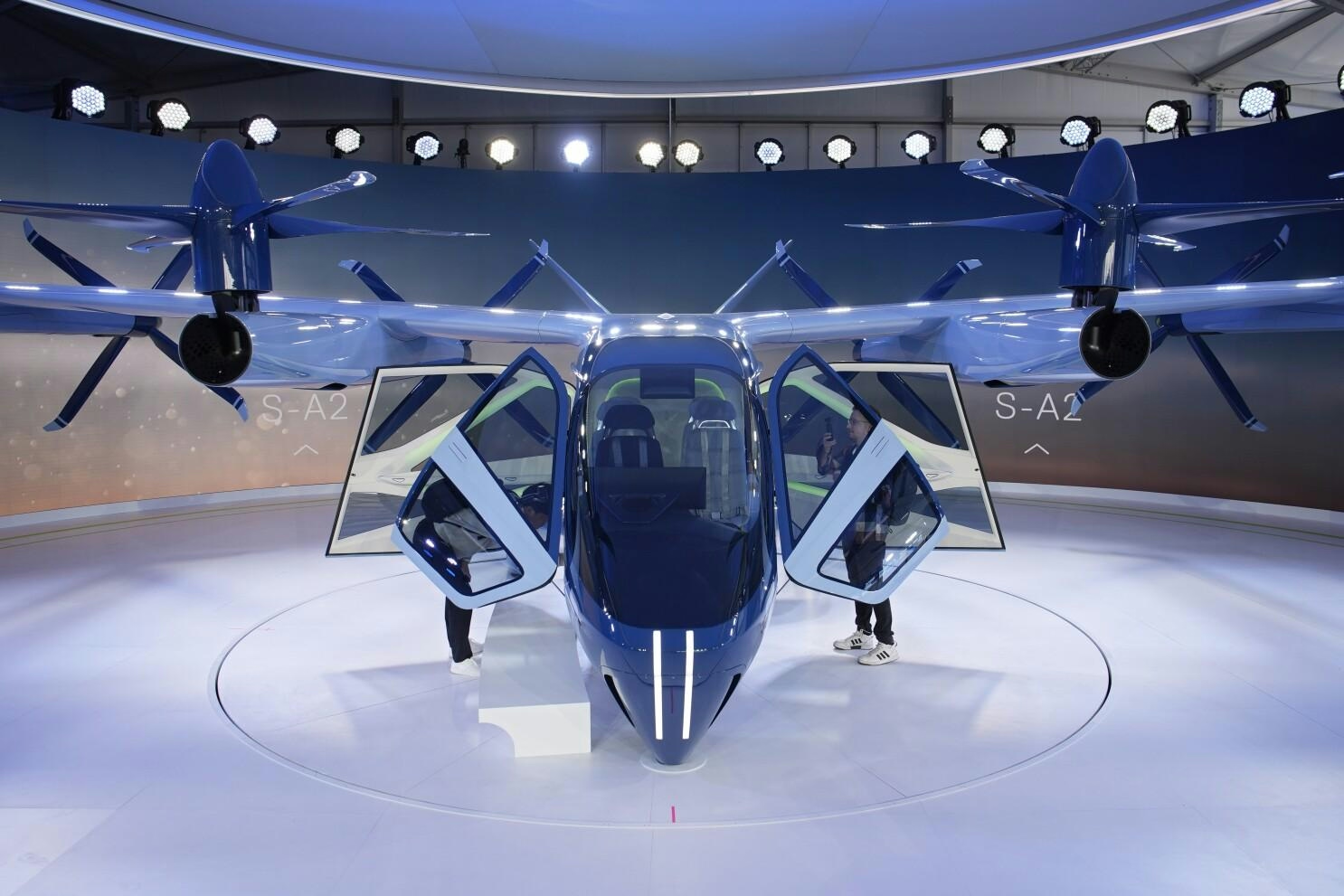أيروجيني — مساعدك الذكي للطيران.
الرائج الآن
Categories
Punjab Company Receives Design Approval for Indigenous 5-Seater Air Taxi

Punjab Company Secures Design Approval for Indigenous 5-Seater Air Taxi
In a significant development for India’s aviation industry and the government’s Atmanirbhar Bharat initiative, Punjab-based Nalwa Aero has obtained design approval for its indigenous five-seater electric air taxi. Engineered to reach speeds of up to 350 km/h and cover distances of 300 km, the aircraft is intended for both intra-city and inter-city travel. Additionally, it can be adapted for use as an air ambulance, offering the potential to revolutionize emergency medical response across the country.
Pioneering Approval and Future Ambitions
Nalwa Aero has become the first Indian company to receive Design Organisation Approval (DOA) from the Directorate General of Civil Aviation (DGCA) for an electric Vertical Take-Off and Landing (eVTOL) aircraft with a seating capacity of five or more. The certificate was formally presented to CEO Kuljeet Sandhu by Civil Aviation Minister Kinjarapu Rammohan Naidu during the recent North India Aviation Summit. Sandhu emphasized that the approval not only validates the company’s technical expertise but also underscores its commitment to advancing urban air mobility in India. He outlined ambitious plans to operationalize eVTOL services by 2028, aiming to provide cleaner, faster, and safer transportation options that align with national sustainability and innovation objectives.
Nalwa Aero intends to launch its air taxi service initially in the Delhi-NCR region, with fares starting at Rs 200, positioning the service as an affordable and accessible mode of air travel. Sandhu also highlighted the broader societal benefits, noting that nearly 500 lives are lost daily on Indian highways due to delays in medical assistance. The company envisions its eVTOL aircraft playing a critical role as air ambulances, facilitating rapid medical transport and potentially saving numerous lives.
Challenges and Industry Outlook
Despite this milestone, the commercialization of urban air mobility in India faces considerable challenges. The sector must navigate complex regulatory frameworks, substantial development costs, and operational intricacies unique to eVTOL technology. While Nalwa Aero’s achievement has generated enthusiasm, industry experts remain cautious about the economic viability and technological readiness of such projects. Market responses have been mixed, balancing optimism for innovation with concerns regarding scalability and long-term sustainability.
Competitors within the sector are closely monitoring Nalwa Aero’s progress. Some may accelerate their research and development efforts, while others might shift focus toward more commercially viable segments in light of the prevailing economic and regulatory environment. The success of Nalwa Aero’s initiative could establish a benchmark for the industry, but it will require overcoming a multifaceted array of technical, financial, and policy challenges.
As India advances toward embracing advanced air mobility, Nalwa Aero’s design approval represents a pivotal step. The coming years will be critical in determining whether the vision of affordable, accessible, and life-saving air taxi services can be fully realized within the country’s rapidly evolving aviation landscape.

Emirates Unveils Cabin Design for New Boeing 777X

Eighteen Years On, the Airbus A380 Remains Central to a $34 Billion Airline

How a boom in luxury airline seats is slowing down jet deliveries

Navitaire Outage Attributed to Planned Maintenance

DigiYatra Debuts Outside Aviation at India AI Impact Summit

Vietnam Orders Strengthen Boeing’s Commercial Outlook

Airbus Signals Uncertainty Over Future A400M Orders

JobsOhio Awards $2 Million Grant to Hartzell Propeller for Innovation Center

Collins Aerospace Tests Sidekick Autonomy Software on YFQ-42A for U.S. Air Force CCA Program

How the Airbus A350-1000 Compares to the Boeing 777
